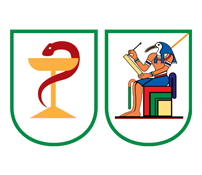Subject Area
Natural Products and Phytochemistry
Abstract
Aging and aging-related diseases pose significant challenges to global public health, necessitating the urgent development of effective anti-aging therapies. In this context, Traditional Chinese Medicine (TCM) emerges as a vital complementary and alternative approach to managing these conditions. Recent research has increasingly highlighted TCM's potential to slow the progression of aging and mitigate the effects of related diseases, including neurodegenerative disorders, cardiovascular diseases, diabetes, and cancer. The body of literature on TCM's role in addressing aging-related diseases has expanded considerably, revealing various mechanisms through which these ancient practices may exert their effects. TCM encompasses a rich array of herbal formulations that target multiple biological pathways, offering a holistic approach to health preservation. For instance, studies have demonstrated that certain herbal compounds, such as quercetin and resveratrol, can extend lifespan in model organisms by enhancing cellular resilience and reducing oxidative stress. This review synthesizes current research on TCM's efficacy in combating aging and its associated diseases. It delves into the underlying mechanisms of action attributed to TCM therapies, providing a comprehensive overview that may serve as a foundation for future investigations. A few TCM formulations are now in FDA clinical trials, addressing challenges like standardization, bioavailability, and the need for rigorous clinical evidence to meet good clinical practice standards. By elucidating the potential benefits of TCM in promoting healthy aging, this work aims to encourage further exploration and integration of these traditional practices into modern therapeutic frameworks for agingrelated health issues.
Recommended Citation
Hemdan, Diaa El Din Ashraf and El-Shiekh, Riham A.
(2025)
"The Role of Traditional Chinese Medicine (TCM) in Battling Neurodegenerative Disorders,"
Bulletin of Faculty of Pharmacy Cairo University: Vol. 63
:
Iss.
1
, Article 3.
Available at: https://doi.org/10.54634/2090-9101.1070
Creative Commons License

This work is licensed under a Creative Commons Attribution-NonCommercial-No Derivative Works 4.0 International License.










Follow us: